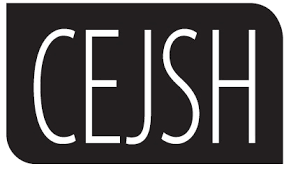ICV: 99.6
The aim of Journal of Legal Studies is to publish quality articles and insightful research ideas in all fields of Law domain having a rigorous methodological aspects and soundness of research outcomes. The Editorial Board is oriented towards a comprehensive, extensive and more accurate original contribution in the Law domain with the final objective to promote a high standards of research outcomes in the light of the latest legal sciences agenda. The complex phenomenon and manifestation of the law in the context of globalization has led the Editorial Board to promote also aspects of transdisciplinary, interdisciplinary and multidisciplinary aspects also with some important domains as: economics, finance, IT, medicine or psychology. It is important to promote in the law sciences also the usage of statistical techniques which will lead to the increasing of the quality of the article are a more empirical structure of the research outcomes. The scope of the Journal is to promote a high degree of innovation in Law domain by providing articles which will have a high degree of impact and importance both for the doctrine and academics, and also for Law practicians with the understanding of modern research methods usage in the social sciences.
In 2001, within the Faculty of Legal Sciences of "Vasile Goldiș" Western University from Arad, a biannual legal journal, named "Studii Juridice" (Legas Studies) made its appearance, published at Cluj-Napoca, at the prestigious Cordial Lex Publishing House (ISSN. 1582-5442).
Today after a period absence of about seven years, the journal returns in force, continuing the scientific demarche began in 2001, under a new denomination - Journal of Legal Studies -, with a new format, under the guidance the Center of Studies and Research – European Dimensions of the Romanian Law (C.S.R.E.D.R.L.) within the Faculty of Legal Sciences of "Vasile Goldiș" Western University from Arad, with a new Editorial Board, a new Scientific Board and with prestigious national and international reviewers.
But we also thank all those whom supported and whom beared a hand to the comming-back of our journal, to the members of the Editorial Board, and especially to the prestigious members who accepted to be a part of Scientific Board of the Journal.
THE REVIEWING PROCESS
The Journal of Legal Studies is opened to a wide range of articles, studies, analyses and research developed in the following fields:
Also, the Journal aims to open the way towards the promotion of an interdisciplinarity (the philosophy of law, sociology of law, mediation etc.) because law must be seen through the aspects that influence peoples lives.
We also welcome articles that materialize in syntheses of jurisprudence or the ones that aim at commenting Romanian and European jurisprudence.
The Journal dedicates a special place to the reviews of various specialized books published in Romania and abroad, in the legal field or to the ones with an interdisciplinary character.
The articles which will be chosen for publication must be based on a solid Romanian and foreign bibliography.
All papers proposed to the Journal for publication will be analyzed and approved within a three stages process:
|
STAGE I |
This stage refers to the prior approval of the papers proposed by the Editor Coordinator of the Journal. The approval consists of drawing a Project of Table of contents. |
|
STAGE II |
This stage implies submitting the papers and the Project of Table of contents for analysis to two referees – members of the Scientific Committee. Each text will be accompanied by the list of evaluation criteria as presented in the Report of Appreciation of the Article completed by each reviewer. |
|
STAGE III |
The final opinion is given by the Editor of the Journal, taking into consideration the Reports of the reviewers. |
The Report of Appreciation of the Article will have the following format and will comprise the following criteria of evaluation of the article:
|
REPORT OF APPRECIATION OF THE ARTICLE SENT FOR PUBLICATION IN THE STUDII JURIDICE JOURNAL |
||||||||
|
THE TITLE OF THE ARTICLE |
|
|||||||
|
THE NAME OF THE AUTHOR |
In orbi |
|||||||
|
Evaluation criteria |
||||||||
|
1. Does the subject of the article correspond to the theme of the Journal? |
NO |
|
YES |
|
||||
|
2. The objectives of the article are clearly defined |
NO |
|
YES |
|
||||
|
3. The use of the bibliographic references is correct |
NO |
|
YES |
|
||||
|
4. The citations used by the author are adequate |
NO |
|
YES |
|
||||
|
5. The conclusions of the article reflect the object of the article |
NO |
|
YES |
|
||||
|
6. The logic support of the scientific arguments |
NO |
|
YES |
|
||||
|
7. The originality of the paper has the following level: |
HIGH |
|
||||||
|
MEDIUM |
|
|||||||
|
LOW |
|
|||||||
|
8. The article contributes to the scientific development |
NO |
|
YES |
|
||||
|
9. The Abstract of the article corresponds to the demands |
NO |
|
YES |
|
||||
|
10. Proposal for the publication of the article |
Without observations or recommendations |
|
||||||
|
With observations |
|
|||||||
|
With recommendations |
|
|||||||
|
Does not propose the publication of the article |
|
|||||||
|
Observations that must be taken into consideration by the author for the publication of the article |
||||||||
|
|
||||||||
|
Recommendations whose inclusion in the text by the author does not impede the publication of the article |
||||||||
|
|
||||||||
|
THE DATE OF SETTING UP THE PRESENT REPORT |
|
|||||||
|
THE NAME OF THE REVIEWER |
In orbi |
|||||||
|
THE FINAL OPINION OF THE EDITOR OF THE JOURNAL |
THE ACCEPTANCE OF THE TEXT |
|
||||||
|
THE REFUSAL OF THE TEXT |
|
|||||||
The final opinion is being sent to the author along with the Report of Appreciation of the Article sent for publication.
According to the previsions of Law no. 8/1996 concerning copyright and related rights, with the subsequent modifications, the acceptance by the Journal of the materials sent for publication, equates to the valid conclusion of the contract of editing. Under this contract, the author assigns on exclusive basis the reproduction and propagation rights over his work.
The Journal reserves the following rights as regards to the materials accepted for publication:
The decision concerning the acceptance for publication or the refusal for publication will be communicated to the author within 45 days of the moment of receiving the article.
Once sent to the Journal, the materials cannot make the object of an offer to other publications but in case of refusal of their publication.
We kindly ask our collaborators to respect the law concerning copyright and to avoid any form of plagiarism.
The Journal does not assume any responsibility in case of plagiarism, this being assumed entirely by the author, both from a legal point of view (civil, contravention, criminal, etc.) and from a deontological point of view.
Journal of Legal Studies
This journal provides immediate open access to its content on the principle that making research freely available to the public supports a greater global exchange of knowledge.
OPEN ACCESS POLICY of our journal
Our journal “Journal of Legal Studies” is an academic journal that allows open access to readers. It is available online to readers without financial, legal or technical barriers, on the principle to maintain the integrity of the content of the article.



















KEYWORDS
Tax Law, Commercial Law, Public Law, Criminal Law, Civil Law, European Law, Family Law, International Law.
